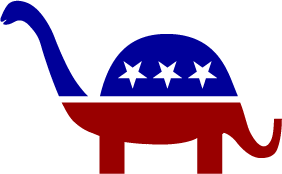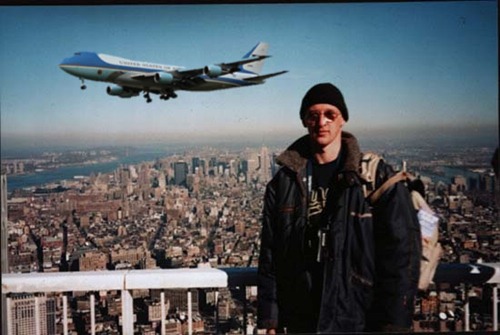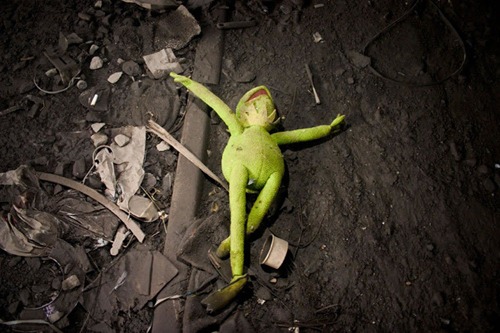 Found via Reddit.
Found via Reddit.
Month: April 2009
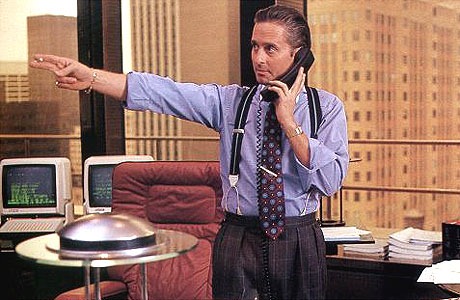
The Independent has a great article by former Wall Streeter Philipp Meyer titled American Excess: A Wall Street Trader Tells All. I’ve included some snippets from the article below, but you really should read the whole thing.

I didn’t fit the typical profile of a trader. I was an English major working on a novel at night. Most everyone else was a maths or economics major, most everyone else had relatives or family in banking. I’d spent a year walking around studying flashcards with maths problems, multiplying random licence-plate numbers in my head, just to prepare for the interviews. I memorised The Wall Street Journal every morning. I didn’t care what I had to do. At Cornell University it was well known that after five years on Wall Street, you could expect to be making half a million a year in salary and bonus; after 10 years you could expect a million or more. I had 60 grand of university debt and my parents had no retirement. I needed that money.

…while derivatives, and the financial industry more broadly, had started out serving industry, by the late 1990s the situation had reversed. The Market had become a near-religious force in our culture; industry, society, and politicians all bowed down to it.
It was pretty clear what The Market didn’t like. It didn’t like being closely watched. It didn’t like rules that governed its behaviour. It didn’t like goods produced in First-World countries or workers who made high wages, with the notable exception of financial sector employees. This last point bothered me especially.

The easiest thing was buy into the system, convince ourselves that there was no other way to live. A few semesters worth of economics classes certainly helped; the in-house economics classes taught by the bank helped even more. The financial markets operate on the principle that, at our core, we’re all basically shit: selfish, self-interested creatures. There’s a whole branch of economics devoted to proving that if you help someone, say, run in front of a speeding train to push another person out of the way, you are actually acting out of self-interest, not altruism; that what most of us would consider humankind’s cardinal virtues – love, honor, compassion – do not actually exist.
The idea that we’re nothing more than selfish animals is an attractive philosophy to a person pulling down a few million dollars a year. It is a philosophy that negates guilt. The guilty feeling a normal person gets while visiting a Third World country is the same feeling a senior investment banker gets when they see a working class neighborhood in Birmingham or Philadelphia. When your paycheck could cover the salaries of a few hundred nurses or teachers, you need some explanation for why that’s okay. The only one that really works is that life is a pure meritocracy. That whether rich or poor, we’re all getting what we deserve.

One of the reasons we allowed the financial industry so much control over our lives, starting in the 1990s and continuing until the meltdown of 2008, is the propaganda smokescreen of The Market. This idea of the God-like Market – all-seeing, all-knowing, and beyond question – is what allows CEOs to put a few thousand people out of work while giving themselves a $40m paycheck. It’s what allows certain hedge fund managers to take home half a billion (yes – billion) in a good year, while schools and bridges fall apart.
In reality, The Market is nothing more than the people who comprise it. Access to trading markets is very tightly controlled – it is not like a shopping mall. And it is certainly not magic. It’s just people. A very small number of people, in fact.

It is crucial to realise that what motivates those people – collecting their million or hundred million dollar bonuses – has nothing to do with the job they actually perform. People used to do it for a lot less and it’s not like there’s a shortage of candidates – I turned away 10 good recruits at Cornell for every one we hired.
The reason we’ve ended up in the spot we’re in today is not so much our failure to understand economics as our failure to understand human nature.
Give a small number of people the power to enrich themselves beyond everyone’s wildest dreams, a philosophical rationale to explain all the damage they’re causing, and they will not stop until they’ve run the world economy off a cliff.
It’s not that people in the City or on Wall Street are necessarily bad people, it’s just that they, like almost anyone, will do anything to keep their million or ten million dollar paycheck. They’ll creatively interpret data, they’ll understate risks, they’ll put the best spin on things. Some will lie, cheat, and steal. But most of them, like most of us, will simply resist looking at the world from any perspective other than their own. And if we are intelligent, we will keep a careful watch on them – both now and into the distant future.
[Thanks to AZSpot.net for the link!]
Photo of the Day

It’s a much more appropriate animal than the elephant, and as you can see in this article, quite intelligently designed:
The New York Daily News has a suggestion:
Not only was flying a Presidential jet for a photo-op Monday over downtown Manhattan in bad taste – it was unnecessary.
Anyone in the White House ever hear of Photoshop?
The article provides a handy photo of Air Force One on a white background:
…and they’ve invited the readers to flex their Photoshop muscles. I thought I’d quickly crank out a couple of doctored images in the hopes of inspiring someone to create a comedic photo-manipulation masterpiece.
Here’s a rather obvious one, featuring the Tourist Guy:
Here’s Air Force One at the Battle of Hoth:
And finally, the movie gets explained:
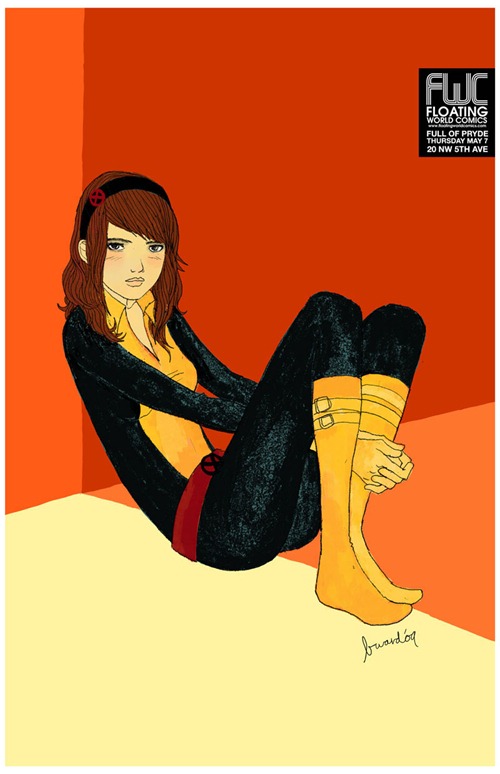 Click the image to see it at full size.
Click the image to see it at full size.
It’s an odd idea, but I’m into it: next Thursday, May 7th, Portland, Oregon’s Floating World Comics will be hosting Full of Pryde, an art show featuring different interpretations of Kitty Pryde of the X-Men. Kitty’s been a popular character ever since she was introduced in Uncanny X-Men #129 way back in January 1980 and was played in the film X-Men: The Last Stand by Ellen “Juno” Page.
The folks at Floating World asked “dozens of comic artists, graphic designers, and illustrators” to create their own renditions of Kitty Pryde, which will be made available for sale, with 100% of the proceeds going to the Hemophilia Treatment Center at Oregon Health and Science University.
You can see some examples of various artists’ renderings of Kitty Pryde at the Full of Pryde blog that they’ve set up.
Swingin’ on the BART
I don’t know what the backstory is, but a group of people decided to have a little fun on BART – that’s short for Bay Area Rapid Transit, the San Francisco-and-surroundign-areas commuter train – and set up some swings. The action was captured in this Flickr set, which includes the photo below:
Looking at these photos reminded me of Accordion City’s late and lamented Secret Swing, which I didn’t know has its own entry in Wikipedia.
